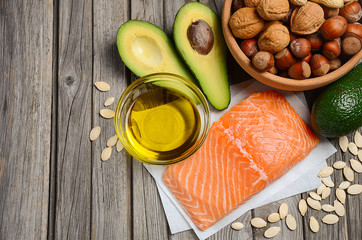Do You Know the Health Benefits of Hazelnuts?
Nuts are a nutrient-dense food that contain healthy fats, protein, fiber, minerals and phenolic compounds. They are thought to offer wide-ranging cardiovascular and metabolic benefits and can be readily integrated into a balanced diet.[i]
The hazelnut, which comes from the Corylus tree of the Betulaceae family, offers a sweet flavor and the flexibility of being eaten raw, roasted, or as a paste in ground form.
It's considered an excellent anti-inflammatory and hypolipidemic treat, being the second richest source of monounsaturated fatty acids (MUFAs) among nuts and being chock full of vitamin E, magnesium, copper, selenium, L-arginine, folate, fiber and polyphenols, to name a few.[ii] Here are five evidence-based benefits of hazelnuts.
1. Antioxidant Protection
Hazelnuts have one of the highest oxygen radical absorbance capacity (ORAC) scores of any nut, signifying outstanding levels of antioxidants.[iii] These chemicals protect the body from oxidative stress, which can damage cells, accelerate aging and promote disease.[iv],[v]
As a testament to their antioxidant prowess, a hazelnut-enriched diet modulates oxidative stress and inflammatory gene expression without causing weight gain.[vi] Compounds of the tiny, mighty nut have been found to have antioxidant and antimicrobial effects.[vii]
Hazelnuts also contain the antioxidant vitamin E, which some studies indicate may help shield the body from cell damage linked to cancer.[viii]
2. Antiobesity Strategy
Proteins derived from hazelnuts are an excellent source of bioactive peptides. A 2019 study purified and identified antiobesity peptides from the nut, finding that the novel synthetic pentapeptide had potential antiobesity effects and may help combat metabolic conditions.[ix]
In a European study involving over 370,000 men and women ranging from 25 to 70 years old, higher intake of nuts was associated with reduced weight gain along with a lower risk of becoming obese or overweight.[x]
3. Improved Cardiovascular Health
The MUFAs and antioxidants in hazelnuts have been tied to a reduced risk of cardiovascular disease.[xi] In an intervention diet lasting up to 84 days with a dosage of hazelnuts ranging from 29 to 69 grams a day, it emerged that a hazelnut-enriched diet can decrease LDL cholesterol and total cholesterol, without substantially changing HDL cholesterol, triglycerides and body mass index (BMI).[xii]
According to separate research, a high-fat, high-MUFA hazelnut diet proved superior to a low-fat diet in terms of creating favorable changes in lipid profiles, therefore positively affecting coronary heart disease risk in the subjects.[xiii]
The high fatty acid content as well as fiber, antioxidants, potassium and magnesium, in the nuts also seemed to help normalize blood pressure levels.[xiv] In a randomized study, the combination of hazelnut and cocoa acted in a synergistic and protective way on the cardiovascular system.[xv]
4. Lower Blood Sugar Levels
Largely due to their micro and macronutrient profiles, nuts are believed to help control blood glucose levels.[xvi] They are low in available carbs, offer a healthy fatty acid profile, and are high in fiber, plant protein and magnesium. In a study that combined hazelnuts with walnuts and almonds for metabolic syndrome patients, the results also reflected reduced fasting insulin levels.[xvii]
5. Potential Use Against Cancer
The high concentration of antioxidants, vitamins, and minerals along with other nutrients in hazelnuts may also give the nut some anticancer action.
In a study, the nuts' shell extract provided antioxidant effects and cytotoxic activity against human cancer cell lines.[xviii] "The cytotoxic activity relies on the presence of the neolignans (balanophonin), and phenol derivatives (gallic acid), showing a pro-apoptotic effect on the tested cell lines," the researchers wrote.
Results from a separate study suggested a potential use of hazelnut extracts against cervical cancer, hepatocarcinoma and breast cancer.[xix]
Learn more about hazelnuts from study abstracts on the GreenMedInfo.com database. Incorporate these nuts into your diet as a snack or a component of many different dishes, enjoying them raw, roasted, sliced, ground or even whole. Peeled hazelnuts can also be turned into flour for healthy baking or as a nutrient-filled spread.
© [12/15/2021] GreenMedInfo LLC. This work is reproduced and distributed with the permission of GreenMedInfo LLC.
